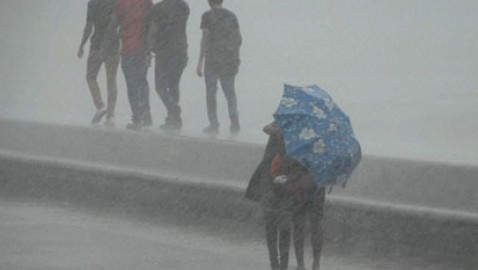
Mumbai, Jul 24: Heavy rains today lashed Mumbai, Konkan and other areas of Maharashtra, prompting the civic agency in the financial capital to advise people to stay at home and schools to shut as a precautionary measure.
Rail and road traffic was also disrupted due to the heavy rains which have disrupted normal life in the metropolis.
The Brihanmumbai Municipal Corporation (BMC) today advised people not to undertake travel in the city unless essential. The civic body has also asked schools to shut following heavy rains as a precautionary measure.
The Met department has predicted more heavy rains in Mumbai and other areas in the next 48 hours.
BMC said that in Mumbai, a high tide is expected this afternoon with forecast of 4.9 metre high waves.
Several low-lying areas in the city were inundated after the incessant heavy rains. Many private schools were shut and the authorities of some schools have also asked parents to collect those children, who had already left home for school.
Trains on Western, Central and Harbour lines were running late.
Till 8 am (since yesterday), Colaba recorded a rainfall of 158.6 mm and Santacruz 168 mm.





Comments
Add new comment